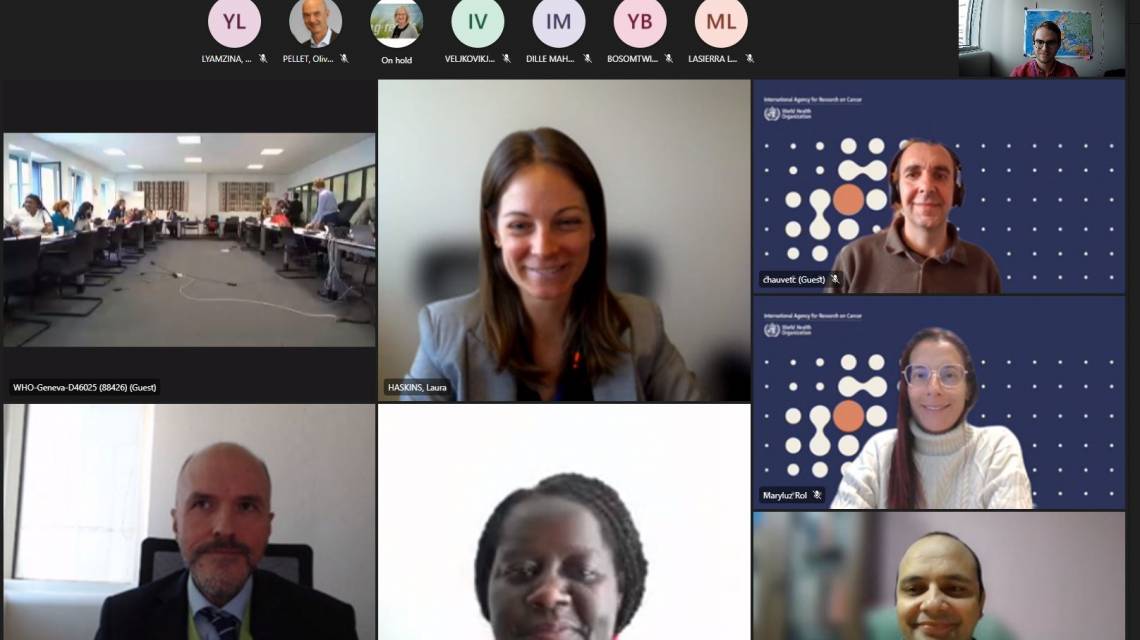Since 2019, the IAEA, the International Agency for Research on Cancer (IARC) and the World Health Organization (WHO) have met to coordinate their complementary work on cancer in what has become an annual, strategic mechanism. The Annual Strategic Consultations facilitate planning for efficient and effective collaboration between with the three UN agencies, which all have a mandate whose shared goal is the improvement of cancer control around the world.
“[Our] commitment for this crucial work grows every year, as recent trends suggest that cancer may become the leading cause of premature death in most countries during this century,” explained Dr Elisabete Weiderpass, IARC Director. “These trends are particularly impactful on low- and middle-income countries, where over 70 percent of cancer deaths are expected to occur.”
At the meeting this year, representatives from the three organizations convened at WHO headquarters in Geneva, Switzerland on 20 and 21 October, following the conclusion of the 2022 World Cancer Congress. The meeting was co-chaired by the IAEA Directors of the Division of Human Health and the Programme of Action for Cancer Therapy Division, and the participants focused on the design and implementation of concrete actions to further improve their partnership.
They also noted the publication of the imPACT review methodology. This publication, recently issued, offers a tangible example of the partnership between the three organizations. It was developed through a process of intense collaboration to clarify and detail the formal process underpinning imPACT reviews, a service jointly provided by the three organizations.




